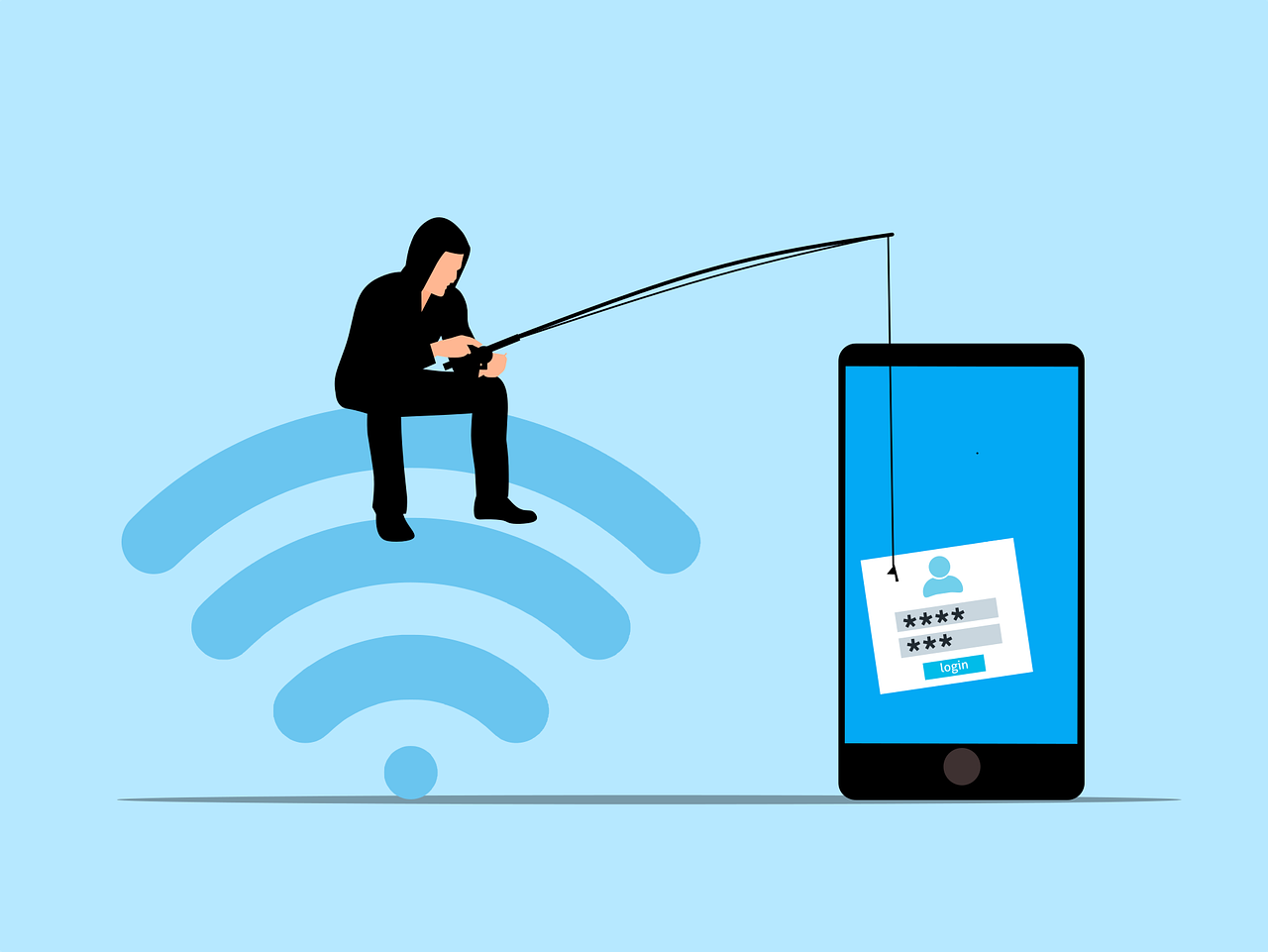Here are the top 5 cybersecurity breaches in online gambling industry.
The online gambling industry has slowly become the major choice for gambling activities due to the convenience it offers. However, as this sector surges in popularity, it has also become a prime target for cybercriminals, resulting in a series of alarming cybersecurity breaches.
These breaches have not only compromised the sensitive data of users but have also eroded the trust and confidence of online gamblers.
In this article, we will take a look at the top five cybersecurity breaches that have left a significant impact on the casino industry, and provide a guide to protecting your personal information.
Table of Contents
Top 5 Cybersecurity Breaches In Online Gambling Industry
The 888 Holdings Data Breach
The 2017 data breach at 888 Holdings was a significant cybersecurity incident that exposed the personal information of more than 7 million customers. This breach occurred when cyber attackers exploited a vulnerability in the company’s systems, gaining unauthorized access to sensitive data, including customer names, addresses, and credit card details.
The repercussions of this breach extended beyond data exposure. It placed affected customers at risk of financial fraud and severely damaged 888 Holdings’ reputation and trustworthiness within the industry. The incident made it clear that even prominent players in the online gambling sector are susceptible to cyber threats.
888 Holdings was founded in 1997 and has been a big player in the online gambling industry. The company owns several sites in all aspects of online gambling, including 888Sports, 888Casino, and 888 Poker. While the breach was a tough challenge for the operator, it currently stands as one of the safest gambling spots for online players.
The William Hill Phishing Incident
In 2020, the global bookmaker William Hill experienced a phishing attack. Cybercriminals sent deceptive emails posing as legitimate messages to company employees, duping them into revealing their login information. With this access, the attackers gained unauthorized entry to sensitive company data.
Phishing attacks are a common method used by cybercriminals to illicitly access valuable information. Despite being popular, it comes as a surprise that employees in one of the biggest gambling companies would not be aware of it. This makes employee training programs important as it makes them aware of phishing attacks.
Teaching staff how to recognize and report suspicious emails, and reinforcing security procedures to prevent unauthorized access are other ways to combat social engineering attacks and prevent data breaches.
The BetUS Ransomware Attack
In 2019, the online sportsbook and casino BetUS encountered a cybersecurity event – the BetUS ransomware attack. Ransomware attacks involve using malicious software known as ransomware, which encrypts data on compromised systems, making it inaccessible to the rightful owners. In this instance, BetUS fell victim to cybercriminals who successfully encrypted critical data, locking the company out of their own data.
With the act in play, the attackers demanded a ransom payment from BetUS in exchange for the decryption key. However, BetUS chose not to yield to these demands, in an effort not to give the cybercriminals their prize and encourage their activities. This means it took a while for the gambling company to find another route through which it would access its data.
Despite their refusal to pay the ransom, the incident had severe consequences for BetUS, causing operational disruptions and leaving customers questioning its ability to secure their private information.
The Betfair Attack
In 2011, Betfair, a leading online betting exchange fell victim to a significant security breach. Cybercriminals successfully infiltrated the company’s database, gaining access to a wealth of personal information, including usernames, email addresses, and encrypted passwords.
While the passwords were encrypted, Betfair took the precautionary step of resetting all user passwords to ensure the safety of its customers.
This breach is just one of many affecting even big names in the industry that seem to have all the right security features in place. It highlights the critical importance of implementing strong password policies and robust encryption methods to safeguard user data.
Betfair’s breach happened way back to a time when effective security protocols on gaming websites were still being understood and today, it has not suffered any of such breaches.
The PokerStars Distributed Denial of Service (DDoS) Attack
Last on our list of the top cybersecurity breaches in online gambling industry is the PokerStars DDoS Attack.
The PokerStars DDoS attack in 2018 was a major cybersecurity incident that hit one of the world’s largest online poker platforms. DDoS, or Distributed Denial of Service, is when malicious actors flood a network with fake traffic to disrupt its normal operations.
In this case, PokerStars’ servers were overwhelmed by a massive volume of traffic, preventing legitimate users from accessing the site and disrupting ongoing games and tournaments.
Ways on how to protect yourself from the dangers of online gaming
Playing online games can be fun and entertaining, but it’s important to stay safe while at it. To keep yourself protected from the risks, here are some easy steps to follow:
- Use Strong Passwords: When creating a password for your gaming accounts, make sure it’s not easy to guess. Use a combination of upper and lower-case letters, special symbols and numbers. Also, avoid using easily guessable information like your birthdate or common words.
- Set up Multi-Factor Authentication: Multi-factor authentication (MFA) adds an extra layer of protection to your accounts. It typically involves receiving a code on your phone that you need to enter along with your password. This way, even if someone knows your password, they can’t access your account without that extra code.
- Protect Your Personal Information: Online gamers often interact with others, but be cautious about sharing personal information. Avoid revealing your real name, address, phone number, or other private details to strangers. Keep your gaming life and personal life separate.
- Only Download from Legitimate Sources: Stick to official app stores or trusted websites when downloading games or game-related software. Avoid downloading from unofficial sources, as they might contain malware or harmful software that can compromise your device and data.
- Keep Software Up to Date: Regularly update your operating system, antivirus software, and any gaming platforms you use. These updates often include security patches that protect your device and data from known vulnerabilities.
- Be Vigilant Against Phishing Emails: Phishing emails are deceptive messages that try to trick you into revealing personal information or clicking on malicious links. Be extra careful of any emails or messages that ask for your login details or financial information. Double-check the sender’s email address and look for signs of phishing, such as unusual grammar or spelling mistakes.
Cybersecurity Breaches In Online Gambling Industry: Frequently Asked Questions
How common are cybersecurity breaches in the online gambling industry?
Cybersecurity breaches are unfortunately quite common in the online gambling industry. A recent study by SecurityScorecard ranked the industry as the third most likely to experience a cyberattack, just behind energy and financial services. Statistics from 2021 show a 167% increase in web application attacks targeting the online gambling industry alone.
What types of data are most vulnerable to cyberattacks in online gambling?
Cyberattacks in the online gambling industry often target sensitive data such as:
- Personal Identifying Information (PII): This includes names, addresses, social security numbers, and passport details.
- Financial Information: This includes credit card numbers, bank account details, and transaction history.
- Betting History: This includes information about past bets, winnings, and losses.
- Player Login Credentials: This includes usernames and passwords used to access gambling accounts.
What are the consequences of a cyberattack in the online gambling industry?
Cyberattacks can have various consequences for online gambling platforms and their users:
For platforms:
- Data breaches and identity theft: Stolen data can be used for identity theft, leading to financial losses and reputational damage.
- DDoS attacks and system disruptions: These attacks can disrupt online gambling services, leading to revenue losses and customer dissatisfaction.
- Regulatory fines and penalties: Regulatory bodies may impose fines and penalties for failing to protect user data.
- Loss of customer trust: Cyberattacks can erode trust in online gambling platforms, leading to customer churn.
For users:
- Financial losses: Stolen financial information can be used for fraudulent transactions.
- Identity theft: Stolen PII can be used to commit identity theft, leading to financial and legal problems.
- Psychological harm: Cyberattacks can cause stress, anxiety, and other forms of psychological distress.
How can online gambling platforms protect themselves from cyberattacks?
Here are some measures online gambling platforms can take to improve cybersecurity:
- Implement robust cybersecurity measures: This includes firewalls, intrusion detection systems, and vulnerability scanning.
- Regularly update software and systems: This helps to patch vulnerabilities that attackers can exploit.
- Educate employees about cybersecurity: Employees are often the first line of defense against cyberattacks.
- Store sensitive data securely: Data should be encrypted and stored in a secure location.
- Have a data breach response plan: This plan should outline how to respond to a cyberattack in a timely and effective manner.
- Comply with relevant regulations: This includes regulations such as the General Data Protection Regulation (GDPR) and the Payment Card Industry Data Security Standard (PCI DSS).
By taking these steps, online gambling platforms can significantly reduce the risk of cyberattacks and protect their users and their businesses.
Conclusion
DDoS attacks can seriously harm online gambling platforms, leading to financial losses and damage to reputation. Problems like DDoS attacks are not invincible and can be prevented if online gambling companies take the right steps.
To protect against DDoS attacks, online gambling operators need to implement traffic filtering and use rate-limiting tools to spot and block fake traffic. They can also use load-balancing methods to spread traffic across multiple servers and scale up infrastructure to handle sudden traffic spikes.
Leave a comment below about the top cybersecurity breaches in online gambling industry.
INTERESTING POSTS
- The History Of Online Gambling And How It Has Developed Over The Past 20 Years
- Online Gambling Safety: How To Select Platform?
- How Online Gambling Sites Use Technology To Ensure Player Security
- Is Cybersecurity Essential For Online Casino Websites?
- Web Security Guide
- Cybersecurity Tips For Gambling
- The Future Of Live Casino Gambling And The Potential For New Technologies
About the Author:
Chandra Palan is an Indian-born content writer, currently based in Australia with her husband and two kids. She is a passionate writer and has been writing for the past decade, covering topics ranging from technology, cybersecurity, data privacy and more. She currently works as a content writer for SecureBlitz.com, covering the latest cyber threats and trends. With her in-depth knowledge of the industry, she strives to deliver accurate and helpful advice to her readers.









